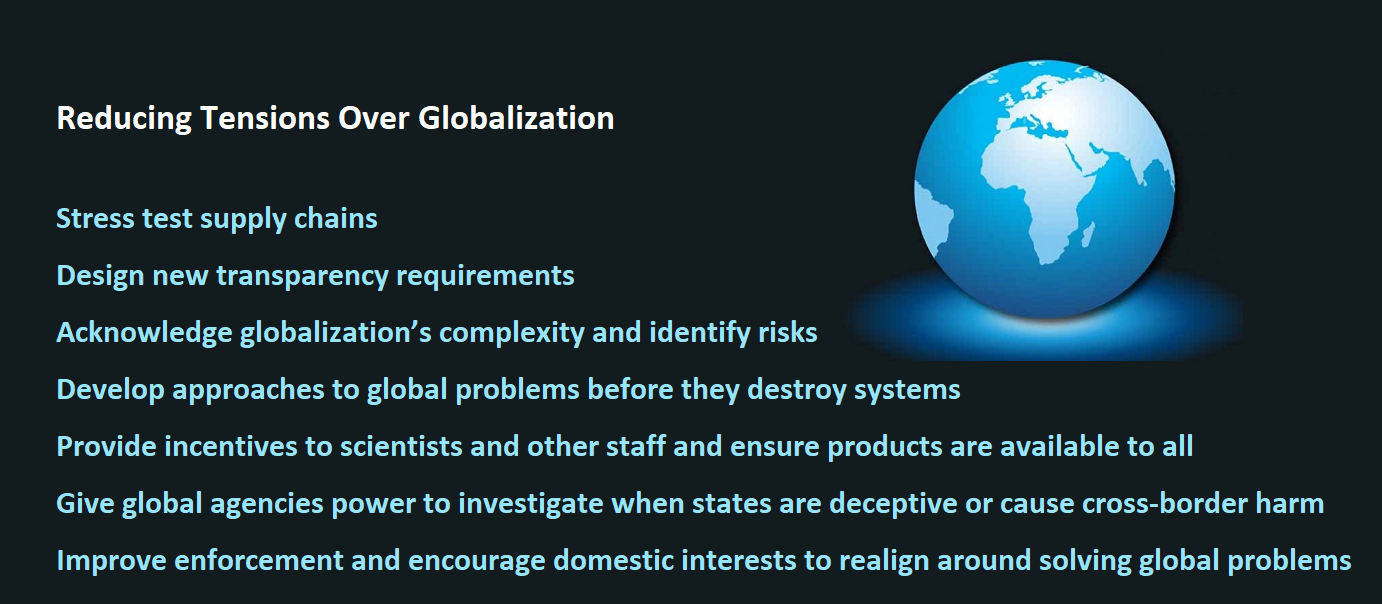Future of Globalization: Foreign Policy
The Covid-19 pandemic exposed society’s dependence on globalization and the challenges. Trade went from predictable to uncertain as nations blocked and confiscated protective medical gear and other needed supplies. Leaders worry about similar disruptions for food or other necessary products. “But the crisis that globalization faces has roots that go far deeper than the current pandemic,” explain Henry Farrell and Abraham Newman for Foreign Policy, emphasizing the myth of a “golden age” for free-market capitalization. Firms relied on hyperglobalization to achieve efficiency and market dominance, “But these trends also generated systemic vulnerabilities, imperiling fragile supply chains in times of crisis and tempting governments to target dominant companies for their own advantage, creating new risks for citizens and states.” The authors argue that unregulated globalization is dangerous, and leaders must strive to prevent problems rather than letting them happen and then find solutions. Prevention may seem costly, but saves in the long run. The authors propose improving systems to mitigate risks and more importantly envision and design a global society that is resilient, eliminating exploitation while focusing on common problems, prioritizing safety and prosperity for all. – YaleGlobal
Future of Globalization: Foreign Policy
The pandemic proved, once and for all, that the world can’t be flat, but global trade can recover – if we rewrite the rules
Tuesday, July 7, 2020
Read the article from Foreign Policy about the urgency to envision and create a new form of globalization that works for all.
Henry Farrell is the Stavros Niarchos Foundation Agora Institute professor at the Johns Hopkins School of Advanced International Studies.
Abraham Newman is a professor in the government department and the Walsh School of Foreign Service at Georgetown University.

Foreign Policy
© 2020, THE SLATE GROUP